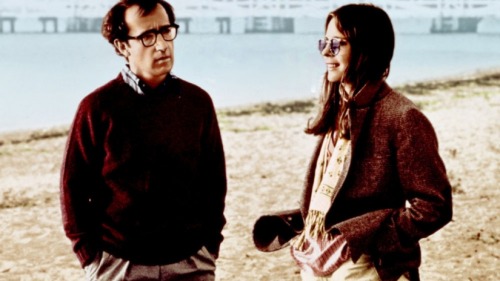The Day After (Gen-Hu) Hong Sang-soo (2017)
Another brick in the house of Sang-soo.
The glory of Hong Sang-soo is that his movies hold up a reflexive mirror for its audience to digest and come away with their own highly personal meaning of what they have just watched. In The Day After is about the ending of a forbidden love between publisher Bongwan (Kwon Haehyo) and his employee (Kim Saebyeok), but the film touches on more as elements of time and space are also artfully edited to paint a non-linear timeline.
Sang-soo is often compared to other filmmaking giants such as:
Jean Eustache who used his own life to make highly personal films while largely remaining quiet about his own past in person.
Joseph L. Mankewitz (born 10 minutes outside my home of Scranton, Pennsylvania) that could produce large amounts of great work in a short period of time.
Woody Allen a genius able to tell existential tales through personal relationships while also illuminating the humor and absurdity of it all. Sang-soo has been called the “Woody Allen of South Korea”, a title I believe he enjoys. In The Day After, Song Areum (Kim Minhee) is slightly disheveled but highly intelligent like Annie Hall. In the closing scene, Areum is dressed in an oversized vest, loose scarf, and a tweed jacket as is Diane Keaton on the poster for Annie Hall.

But I’d like to point out how Sang-soo, having parts in common with those above, also has the genius of Terrance Malick. Malick is different from other filmmakers in one major pivotal point and that is through his belief in God. Song-soo has the ability to knock down those internal barriers we put up when we know we are about to engage in a discussion about religion. The Day After has some of the best dialogue I have seen so far in his work. Kim Minhee is effortless in her performance as Song Areum as she asks her new employer, Bongwan, what he lives for. Bongwan is under the impression that reality has no objective meaning but Areum describes her understanding of the world through her three realizations. She is not the main character in the story, death can come at any moment, and that everything is okay in the end.
Song Areum (Areum translates to beautiful) later admits that her sure footing has come from her belief in God but that hides that part of her out of fear of making others uncomfortable. Through her, Song-soo is able to tell us what he is doing while using the meta vehicle of his film to disguise it. Song Areum’s past and her reconciliation with it gives her the edge to see through the dysfunction we create and perpetuate when we believe that we are the center of our own story and that others are merely means to the heroic ending of our own lives. Kant’s categorical imperative is put as the hypothesis of the film. How does morality come into play between us and our relationships with others? If you’re Bongwan, you become both coward and oppressor. If you are Bongwan’s wife (Cho Yunhee) you are consumed with fear and loathing. If you are his lover and employee, you are trapped in a demoralizing relationship, but if you are Song Areum you are able to gracefully walk through the fire and find beauty in it.

Comments